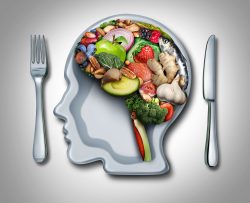 The link between diet and overall well-being is well-acknowledged, yet understanding the exact impact of specific dietary choices on health can be challenging. The effects of food on brain function are particularly intricate, with ongoing research aimed at determining which diets best enhance cognitive abilities and brain health. In one investigation, researchers explored four different dietary patterns, concluding that a diverse and balanced diet offers the greatest benefits for brain health.
The link between diet and overall well-being is well-acknowledged, yet understanding the exact impact of specific dietary choices on health can be challenging. The effects of food on brain function are particularly intricate, with ongoing research aimed at determining which diets best enhance cognitive abilities and brain health. In one investigation, researchers explored four different dietary patterns, concluding that a diverse and balanced diet offers the greatest benefits for brain health.
In the study involving nearly 182,000 individuals, researchers observed that participants adhering to a balanced diet tended to exhibit improved mental health and cognitive performance. The study also highlighted potential genetic variations that could affect how different diets impact individuals.
Studies indicate that consuming a diet abundant in fruits, vegetables, whole grains, lean proteins, and healthy fats can bolster cognitive functions and decrease the risk of cognitive deterioration. On the other hand, diets that are rich in processed items, saturated fats, and sugars are likely to adversely affect brain health.
In the study under discussion, researchers analyzed data from the UK Biobank, concentrating on participants’ preferences across various food categories such as dairy, fruits, alcohol, flavorings, meat, starches, snacks, and vegetables. They explored the relationship between these dietary preferences and various outcomes on the brain. The assessment included mental health indicators like mania, anxiety, trauma, depressive symptoms, psychotic experiences, self-harm, and overall well-being. Higher scores generally indicated worse mental health, except in the case of well-being, where higher scores denoted better mental wellness.
Additionally, the researchers assessed cognitive function using a series of tests, analyzed blood biochemistry and metabolic markers, and conducted MRI scans to examine brain structure. They also investigated polygenic risk scores for mental disorders, which evaluate the genetic contributions to the risk of mental illnesses, and performed a gene enrichment analysis to further explore these associations.
The study revealed that among the four dietary groups analyzed, the balanced diet group experienced the most significant benefits. Participants in this group showed lower scores in most mental health assessments and higher well-being scores. Additionally, they demonstrated the quickest reaction times. Meanwhile, those following a high-protein, low-fiber diet performed best on a cognitive test involving symbol substitution. Notably, individuals in the balanced diet group also exhibited greater levels of gray matter in specific brain regions compared to those in the high-protein, low-fiber group.
This research indicated that a healthier diet, characterized by balanced choices across several food categories including fruits, proteins, vegetables, snacks, and starches, is linked with improved mental health, enhanced cognitive function, and a reduced risk of mental disorders.
Although further research is necessary, these findings underscore the significance of prudent dietary decisions for enhancing brain functionality and mental health.
To view the original scientific study click below:
Associations of dietary patterns with brain health from behavioral, neuroimaging, biochemical and genetic analyses





